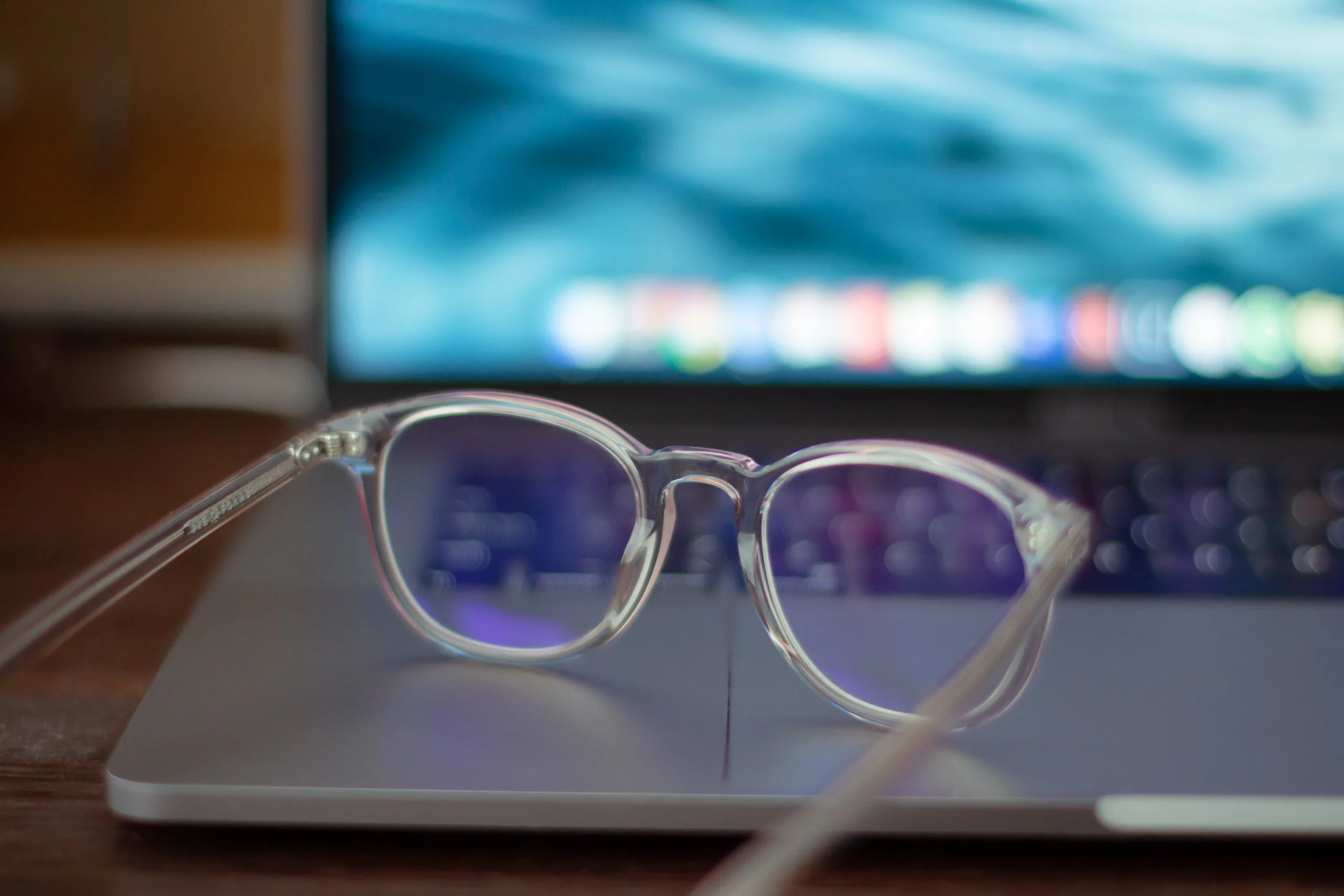Is Blue Light Bad for Your Eyes? How FourEyes Can Help You Combat It
In this digital age, we spend a significant portion of our lives glued to screens. From laptops to smartphones, tablets to televisions, our world is bathed in the glow of electronic devices. Along with the convenience and connectivity these devices provide, they also emit blue light – a topic that has raised concerns about its potential effects on our eyes and overall health.
The Blue Light Conundrum
Blue light is part of the visible light spectrum and is emitted not only by digital screens but also by the sun. It plays a role in regulating our circadian rhythms and boosting our alertness during the day. However, prolonged exposure to excessive blue light can pose certain risks to our eyes and overall well-being.
So, is blue light really bad for your eyes? The answer isn't entirely straightforward. Some studies suggest that excessive blue light exposure may contribute to eye strain, discomfort, and disrupted sleep patterns. While more research is needed to draw definitive conclusions, it's essential to consider the potential effects.
FourEyes: Your Blue Light Solution
At FourEyes, we understand the concerns surrounding blue light exposure. That's why we offer specialised lenses that combat the potential adverse effects of blue light. Our blue light blocking lenses can be customised to your prescription, ensuring you have the clearest vision and optimal protection against the harmful rays.
Customisation: Our expert team can fit blue light blocking lenses into a wide range of frames, offering you a tailored solution that caters to your unique vision requirements.
Protection: Blue light blocking lenses help to reduce the amount of blue light that enters your eyes. This can lead to less eye strain, improved sleep quality, and a more comfortable experience when using digital devices.
Tips to Reduce the Effects of Blue Light
While blue light blocking lenses can be an effective solution, here are some additional tips to help reduce the potential effects of blue light:
Limit Screen Time: Take regular breaks from screens, practice the 20-20-20 rule (look at something 20 feet away for 20 seconds every 20 minutes), and avoid screens at least one hour before bedtime to improve sleep quality.
Adjust Screen Settings: Most devices allow you to adjust screen brightness and blue light emissions. Reducing these settings can help minimize your exposure.
Use Anti-Reflective Coatings: Consider adding an anti-reflective coating to your glasses, which can reduce glare and blue light reflections.
Install Blue Light Filters: Install blue light filter apps or software on your devices to reduce blue light emissions.
Maintain Proper Lighting: Ensure you have adequate, even lighting when using screens. This can reduce the contrast between the screen and its surroundings.
Conclusion
The question of whether blue light is harmful to your eyes remains a topic of ongoing research and debate. Nevertheless, it's crucial to be proactive in protecting your vision. FourEyes offers customizable blue light blocking lenses that can be fitted to your prescription for a clearer, more comfortable viewing experience. While adopting the tips mentioned above, along with our lenses, you can mitigate the potential effects of blue light and continue to enjoy the digital world while preserving your visual well-being.



